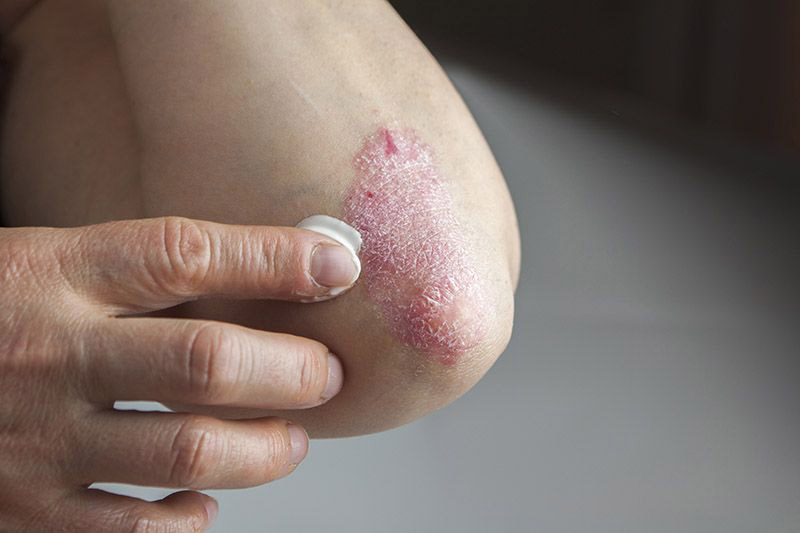
Psoriasis is a chronic inflammatory immune mediated disease which affects nearly 7 million Americans. The disease is a red or erythematous scaling eruption which can start anywhere, but usually appears on elbows, knees, scalp, groin/ genitals and hands. It can be very itchy and uncomfortable and when severe, can result in painful fissured, split skin or bleeding skin. This can make it difficult to use the hands or feet when those areas are affected.
Psoriasis is considered mild if less than 5% of the skin is affected. Moderate to severe psoriasis involves more than 10% of the body, with the palm being 1%.Read More
Psoriasis can be associated with several internal diseases, including heart disease, atherosclerosis (high cholesterol and triglycerides), insulin resistance, obesity and arthritis. Usually these diseases occur later in life (less than 40 years of age) while the psoriasis often starts in adolescence or early adulthood.
There are many treatment options for psoriasis. For psoriasis less than 5%, we often prescribe topical corticosteroids, tar products and other emollients. For moderate psoriasis, we can use phototherapy or light boxes to treat psoriasis. For moderate to severe psoriasis, oral medicines or injectable products are available. There are numerous medications available and you and your doctor can decide the best choice for you.
Psoriasis is a lifelong disease- there is no cure but there are many effective medications and phototherapy which can keep the skin clear. If arthritis is a component of your disease, there are medicines which we use to treat both psoriasis and the arthritis. For more information on psoriasis and who in your area treats the disease, you can contact National Psoriasis Foundation at www.psoriasis.org.
At Tulane, we have a special phototherapy unit with equipment used to treat psoriasis on the scalp, hands and feet or even the entire body. Our dermatologists are nationally recognized leaders in the treatment of psoriasis. See your dermatologist for the best treatment for you.
